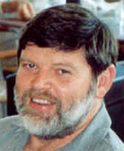- Track your orders
- Save your details for express checkout
×
Registrant Details
Use this window to add all the registrants you wish to register on behalf of. If you want to attend the course also, ensure you add yourself as one of the registrants. Make sure you press "Save" after adding each new registrant.
Registrant 1
First name
Last Name
Email Address
Username ( if known )
NZLS Member or Associate Member?
1x Registrant
The New District Court Process - a radical change
Published: 03-08-2009
Author(s): Judge Rod Joyce, Simon Judd, Dean Russ, Judge Tom Ingram, Judge Colin Doherty
Pages: 138
Price From
NZ $55.00
This book is only available in PDF format
Published: 3 August 2009
Pages: 138 pages
Philosophy and objectives
New District Court Rules are timetabled to come into force on the 1st November 2009. At their heart lies a philosophical sea-change to the litigation process which has no New Zealand precedent and no clear parallel in the common law world. There is a reason for change. The existing procedural model of a staged process directed towards a contested witness action was designed in a world of quill pens. It is demonstrably flawed in today's society. The arrival of the photocopier and the computer have been generally ignored in the design of the civil litigation process, with the possible exception of the limits imposed upon the length of submissions in the Court of Appeal.
The only significant procedural advances in the last 100 years have been the advent of summary judgment and judicial settlement conferences. They have generally delivered on their main design objectives, providing short cuts to judgment or settlement. Both procedures are nevertheless based on a process designed to cater for a defended witness action, with the limitations and expense inherent in that basic premise.
For a significant proportion of the last decade a very substantial effort has been made by a number of people to redesign the litigation process, modernising it to reflect modern business practices, and the technological and judicial resources now available. It has been widely recognised for many years that the existing procedural matrix is too slow and cumbersome to properly meet the legitimate demand for access to affordable justice, a demand that has been left unmet for far too long. Wide ranging and lengthy consultation with the legal profession and other interested groups and entities has occurred, and following a gestation period of over five years the new rules have reached the point of parturition from the parent body of adjectival law.
Some of the changes are fundamental, because fundamental change is needed. The core philosophy of the new rules puts access to justice ahead of competing considerations. The defended witness action is no longer the focal point of the process, and has been relegated from its position of primacy to become simply one of several possible outcomes. The reason for that is straightforward. The assumption underlying existing common law civil procedure is that all cases will go to a hearing as a witness action. That assumption is such an obvious myth that the pretence can no longer be maintained. In all common law jurisdictions around the world, only a very small percentage of cases actually reach trial. In the District Court in New Zealand the figures across the registries rarely reach 3%, and in some registries the figure is 1% or less. Most cases settle, either because they should, or because one or both parties have to.
The new Rules take settlement as the basic objective, the process being designed to
enhance the prospects of settlement at an early stage. The full scale witness action trial, with its attendant expense and delay, has been procedurally relegated to its economically justifiable place, namely the very last resort. Summary judgment will only be available by judicial direction following a settlement conference, reducing the relative expense in cases involving smaller monetary claims. In between early settlement and the full scale witness action, shorter and cheaper forms of trial are made available.
The object of the new rules is to secure the just, speedy and inexpensive determination of proceedings (r 1.3). Explicit objectives include equal treatment of parties, saving expense, recognition of the need for proportionality in connection with the importance of the case, the complexity of the case, the amount of money involved and the financial positions of the parties, all the while recognising that there are limits to the court's resources. These objectives are interpretative canons.
Leave will be required for many of the steps and processes now contained in the 1992 rules. Where leave is required the consent of all parties may be substituted for leave (r 3.40). The costs jurisdiction will remain essentially unchanged from the present (r 4.1).
A significant objective of the new Rules is to make the process user friendly and accessible to laymen. Litigation has probably never been genuinely accessible to laymen, and the creation of legal aid for civil cases has not proved to be a practical panacea. From a judicial perspective, one of the most notable features of modern judicial life has been the exponential growth in numbers of self-represented litigants. The new Rules are intended to enhance access to justice, both by reducing the cost of getting a dispute to the point at which meaningful settlement negotiations can occur, and by making that process accessible to lay litigants.
One of the primary means by which the process is intended to be made accessible to lay litigants is the provision on-line of District Court forms. It is intended that worked examples will be provided for common types of claim and response and counterclaim, information capsules and pursuit of claim forms. Electronic filing is not yet practicable, but the provision on-line of electronic forms represents a handy first step in the direction of electronic filing in due course.
 |
 |
 |
| Judge Colin Doherty Christchurch District Court |
Judge Tom Ingram Tauranga District Court |
Judge Rod Joyce QC Auckland District Court |
 |
 |
|
| Simon Judd Barrister Auckland |
Dean Russ Fletcher Vautier Moore Nelson |
Questions?
You might also be interested in ...
Judicial Settlement Conferences
Publication Date: 10-11-2008Author(s): Associate Judge John Faire, Judge Tom Ingram, Helen Rice
Effective use of Interlocutories and using Case Management Rules to best effect
Publication Date: 01-09-2009Author(s): Associate Judge John Faire, Graeme Hall, Sarah Katz
Course is full please email us to join the waitlist
